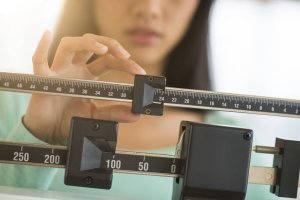Discover The Real Biological Age of Your Body

Some young people behave like elderly people and vice-versa, instead of acting as their real age. By this, we’re not referring to habits that might make us look older or younger but rather we are talking about how they can affect your body and biological age.
To sum up, our biological age varies and is not always the same as the number of candles we blow out each year on our birthday cake!
Now, read on to find out the real age of your body!
What is your biological age?
A series of tests can help you determine the many factors that influence the biological age of your body and they relate to how you treat it.
In fact, doctors in some cities are already relying on this type of data to determine whether or not to accept a person donating an organ.
Also read:
Moreover, the tests also help doctors know and even predict a patient’s possible age of death and to identify which people may develop dementia or Alzheimer’s disease.
The importance of your biological age
According to science, biological age is more important than our date of birth. However, the use of chronological age still dominates in medicine.
But biological age tests can do more: they help each person know if their customs and habits are beneficial or harmful to their health and the results can be quite interesting!
One of the tests is a blood test to identify the signs of ageing in your cells which can be used to compare them to the behavior of the 150 key genes for health.
Furthermore, there are signs in the cellular tissues that can indicate if someone will suffer from cognitive deterioration or will live longer than average.
As a result, from the age of 40, patients have the possibility of knowing what is ageing them. Unfortunately, science has not yet succeeded in slowing down this process but it can now tell us that “age” and “health” are two totally separate issues.
Scientists in this study said the test could be very useful for predicting brain and neurodegenerative diseases in a timely manner. They also said that it may help doctors to treat these illnesses early, so that they don’t become chronic.
In short, it seems we may soon all be judged by our biological age and maybe society, insurers or medical companies will analyze each person in a smarter way.
Example of a test to determine the real age of your body

However, there are several tests that don’t require drawing blood to calculate the real age of your body.
That is to say that answering a series of questions gives us a more or less correct answer.
Above all, it’s necessary to answer as objectively as possible and to understand the reason behind the final result. These questions are about your daily lives and habits.
You may want to read:
Habits that May Help Reduce the Risk of Dementia
One of the tests that can be easily found is the following:
Start from your chronological age and then add or subtract years as appropriate.
1. How many friends do you share your problems with?
- With none (one year older, +1)
- Between one and three friends (half a year younger, -0.5)
- With four or more (one year younger, -1)
2. How many hugs or kisses do you get per week?
- None (one year older, +1)
- One to three (half a year younger, -0.5)
- Four or more (one year younger, -1)
3. What age do you think you are going to die at?
- Before 75 (two years older, +2)
- Between 76 and 90 (one year older, +1)
- Between 91 and 99 (+0)
- After 100 (two years younger, -2)
4. Can you touch your heels with your legs straight?
- Easily (-1, a year younger)
- If I push a little (0)
- I can almost do it (half a year older, +0.5)
- Between 2 and 5 cm away. (+1)
- Nowhere near (+2)
5. How in shape is your body?
- I’m obese (+3)
- Not great. I’m clearly overweight (+2)
- I’m five pounds overweight (+1)
- My weight’s perfect for my height (-1,5)
- I’m underweight (-1)
6. How big is your belly?
- You can’t grab it all because of how large it is (+1)
- Round (+0.5)
- Almost flat (+0)
- Flat (-0.5)
7. How often do you feel tired or experience a drop in energy?
- Almost every day (+2)
- Almost every day after lunch (+1.5)
- Sometimes (+0.5)
- Never (-1)
8. Do you smoke?
- No, I’ve never smoked (-3)
- I gave it up more than five years ago (-2)
- No, I stopped smoking three to five years ago (-1)
- I gave it up one to three years ago (+0)
- No, I stopped smoking this year (+1)
- Yes, I smoke (+3)
9. How much is the most alcohol you’ve drunk in a day in the last year?
- Three glasses or less (+0)
- Four glasses (+0.5)
- Five or less (+1.0)
- More than five (+1.5)
10. Have you had a lot of dental work or do your gums bleed when you brush your teeth?
- My gums bleed or I’ve had eleven or more of my teeth fixed (+1.5)
- Four to ten teeth fixed (+1)
- One to three teeth fixed (+0.5)
- No (+0)
11. Do you drink soda or industrial fruit juices?
- Never (-1)
- One to three glasses per week (+0.5)
- Four to six glasses (+1)
- More than seven (+2)

12. Do you use tinned and canned food?
- In all meals (+3)
- In the majority of meals (+1)
- For less than half of my meals (-1)
- I never use processed food (-2)
13. How many times a week do you feel too full after eating?
- More than seven times (+3)
- Three to six (+2)
- One to two (+1)
- Never (-1.5)
14. How many colds did you suffer from last year?
- Five or more (+1.5)
- Three or four (+1)
- One or two (-0.5)
- None (-1)
15. Have you taken antibiotics in the last five years?
- No (-2)
- One to two occasions (+2)
- Three or more occasions (+5)
16. How many times a week do you walk or exercise for 30 minutes or more?
- Never (+1)
- One to two times (+0)
- Three to four times (-0.5)
- Five or more (-1.5)
17. How many times per week do you do strength exercises?
- Never (+1)
- One or two (+0.5)
- Three to five (-1.5)
- Six or more (-0.5)
What’s your biological age?
All cited sources were thoroughly reviewed by our team to ensure their quality, reliability, currency, and validity. The bibliography of this article was considered reliable and of academic or scientific accuracy.
- Vargas, E., & Espinoza, R. (2013). Tiempo y edad biológica. Arbor. https://doi.org/10.3989/arbor.2013.760n2008.
- Escorcia Hernández, L. (2015). La edad biológica vs. la edad cronológica: reflexiones para la antropología física. UNAM Doctorado de Antropología.
This text is provided for informational purposes only and does not replace consultation with a professional. If in doubt, consult your specialist.








